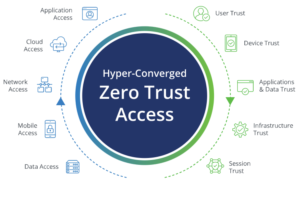Table of Contents
Introduction
Open source software is either loved or hated, depending on who you ask. However, as small businesses continue to rely more on technology and online operations, it has become critical to have proper security measures in place. Unfortunately, proprietary software solutions for network security can be expensive and may not offer the flexibility that small businesses need. That’s where open source software comes in. By using this software to secure their networks, small businesses can take advantage of a range of benefits, including lower costs, transparent solutions, increased customization options, and community support.
Advantages of Open Source Software
One of the primary advantages of using open-source software for network security is the cost savings. Small businesses often have limited budgets, and open source software can provide a more affordable option compared to proprietary software. Many open-source security tools are available for free or at a significantly lower cost than their proprietary counterparts.
Additionally, open-source software often comes with a range of customization options that can help small businesses tailor their security solutions to their specific needs. These solutions cover everything from antivirus, to firewalls, to intrusion detection systems, and more. Although they may not be best-of-breed, they are likely to satisfy at least the majority of needs for a fraction of the cost. We have a listing of the top 20 open source solutions for security, and you might be surprised to see some of the names on the list.
Another advantage of using open source software for network security is the increased flexibility and customization options. This can be especially valuable for businesses that have unique security needs that cannot be met by off-the-shelf software. Companies aren’t locked into paying for expensive software with high overhead simply because it had 1 function they needed.
Another one of the key benefits is transparency. With proprietary software, the code is usually kept secret, making it difficult for small businesses to understand how it works, ensure that it is secure and how it handles their data behind the scenes. In contrast, open-source software is transparent, which means that small businesses can examine the source code to understand how it works and ensure that it is secure. This transparency can give small businesses peace of mind and allow them to make informed decisions about their security solutions.

Finally, open source software is backed by a vibrant community of developers and users who are constantly working to improve and enhance it. According to the Open Source Initiative, “unlike traditional projects that require physical resources, sharing economies are generally only hindered by the number of people contributing to an effort and their ability to acquire and share knowledge”.This means that small businesses can benefit from ongoing updates, bug fixes, and new features without having to pay for them. Community support can be a valuable resource for small businesses that need help troubleshooting or implementing their security solutions.
Closing
In conclusion, embracing open source software for network security presents small businesses with a trifecta of advantages: substantial cost savings, unparalleled flexibility and customization, and a newfound sense of transparency. These benefits not only empower smaller enterprises to fortify their digital defenses within budget constraints but also enable them to tailor security solutions to their unique requirements. Furthermore, the dynamic open source community ensures a steady stream of improvements and innovations, all without the burden of additional expenses. As we’ve seen, open source software is not just an affordable alternative; it’s a pathway to robust, adaptable, and informed network security solutions that can grow alongside your business. So, when considering your security strategy, don’t overlook the power and potential of open source solutions.





